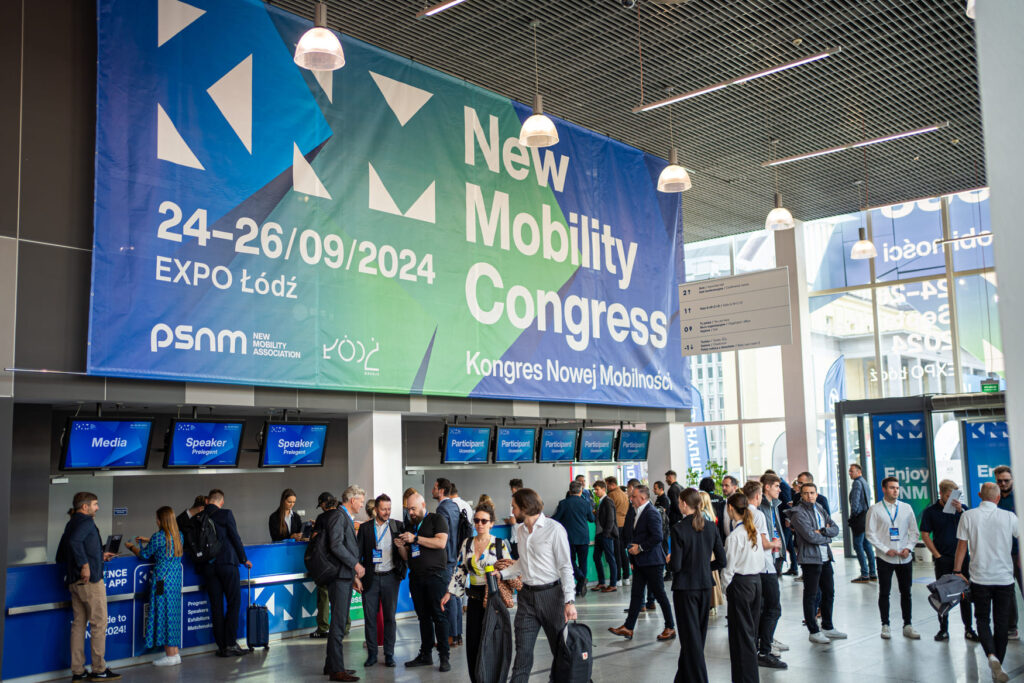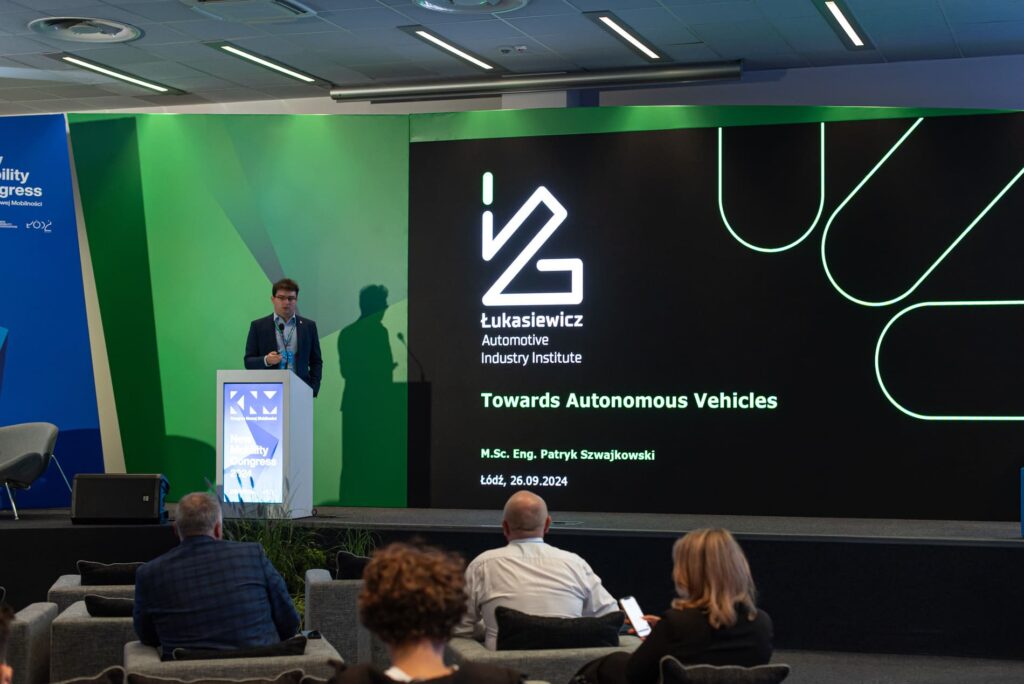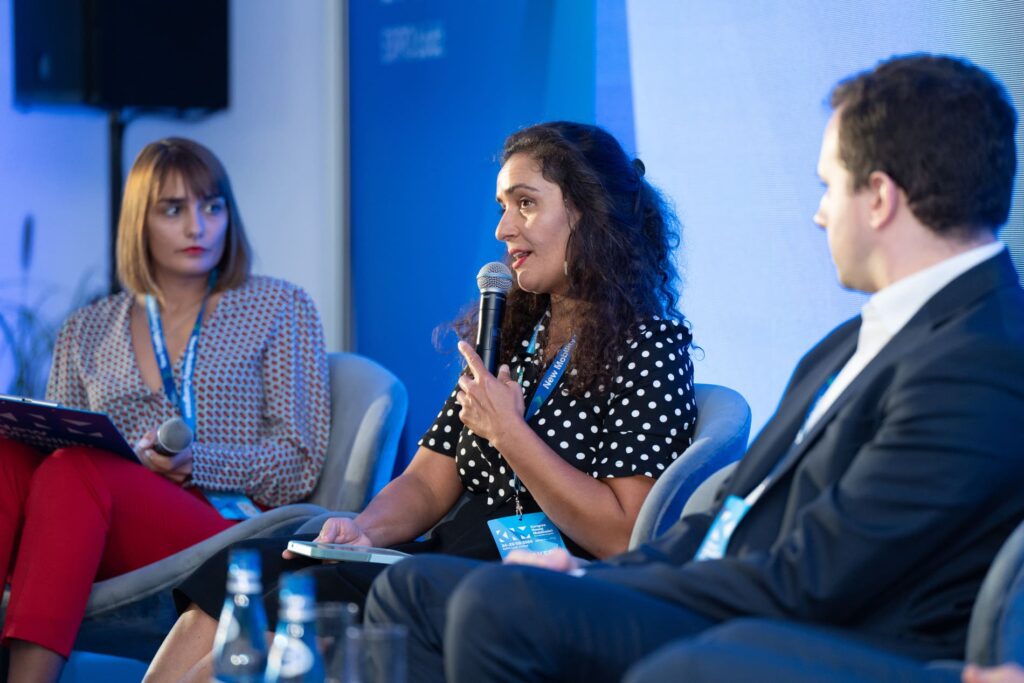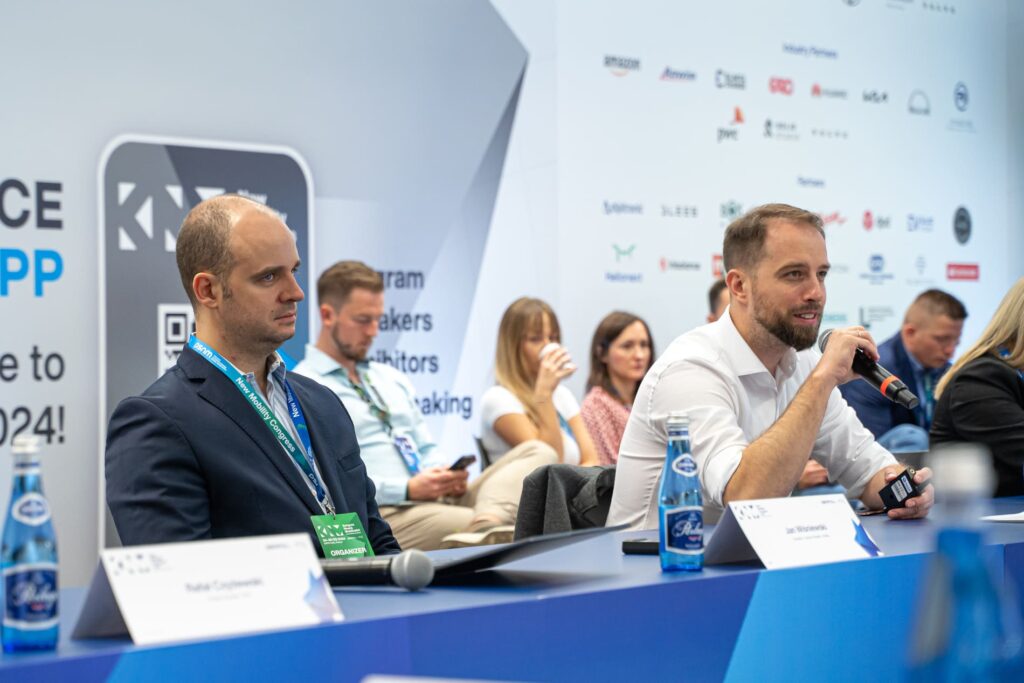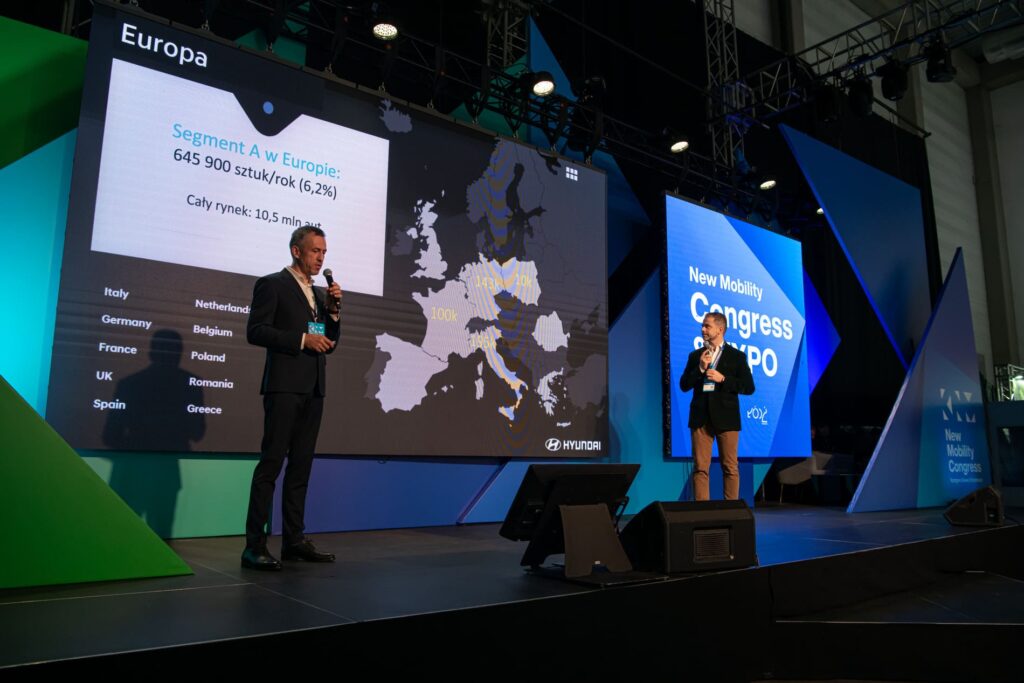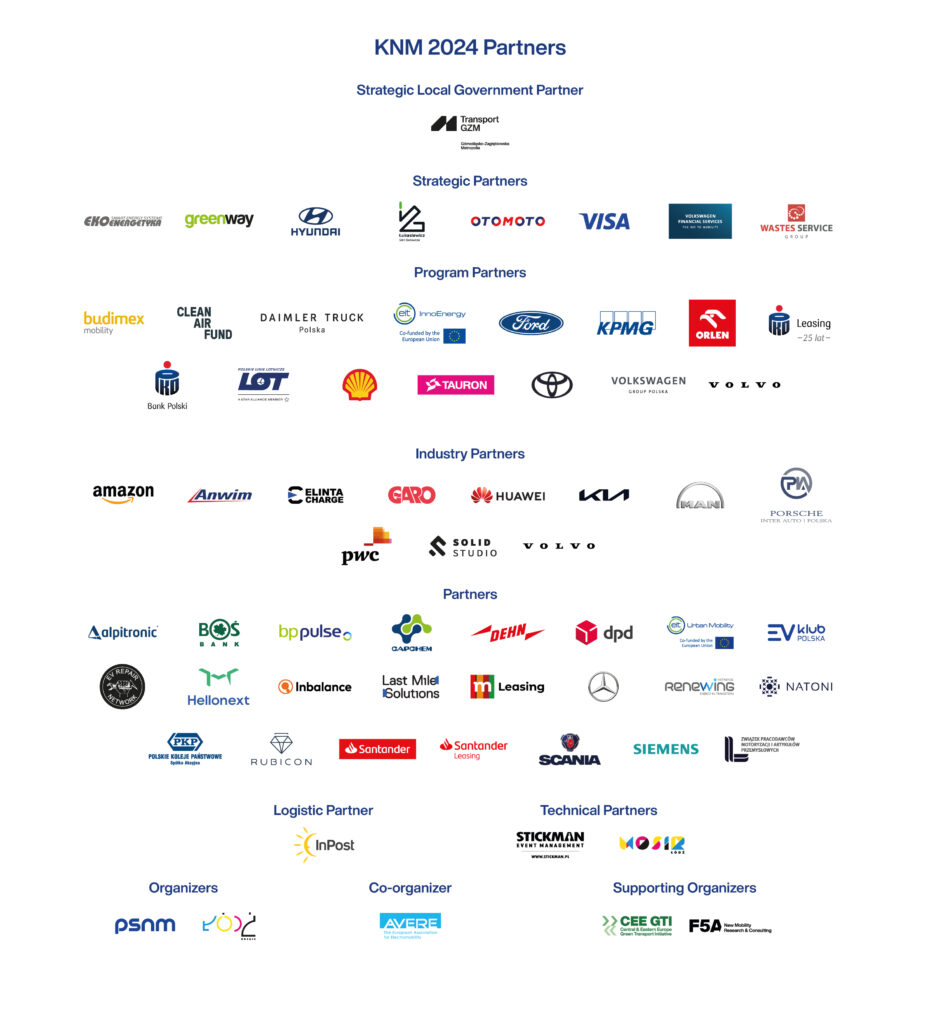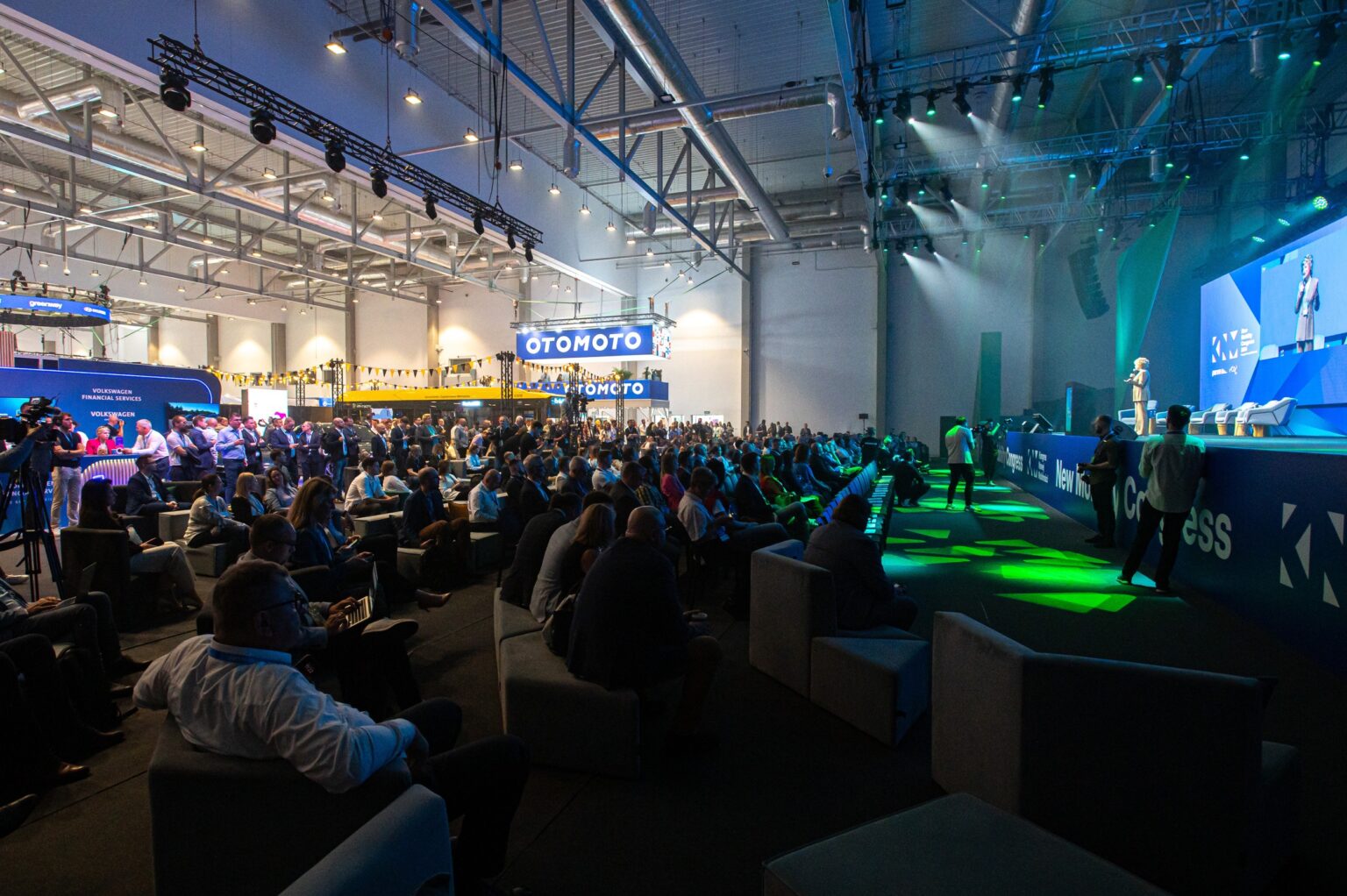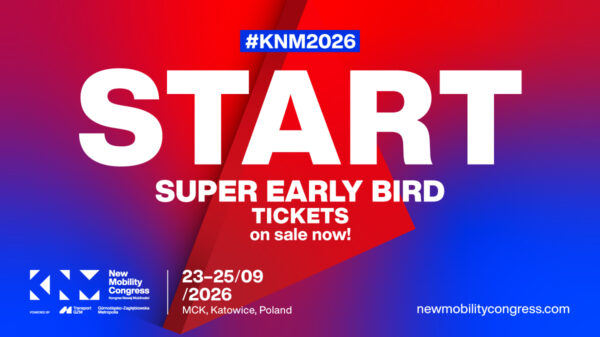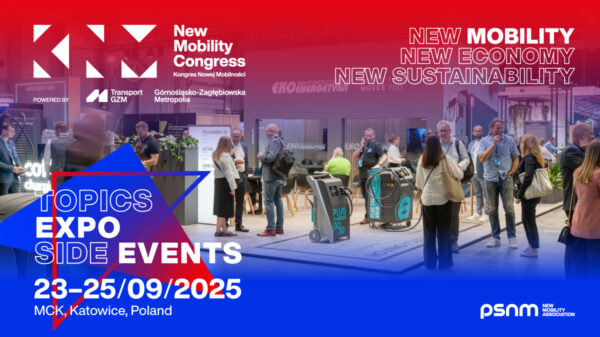KNM 2024 is now behind us, recognized as the largest conference of the new mobility industry in Central and Eastern Europe. Over 72 hours, more than 400 speakers from around the world took part in 160 program sessions, discussing the most important challenges and political, market, economic, technological and social trends related to zero-emission transport. What are the major conclusions from this transformative event?
The fifth edition of the New Mobility Congress, a record-breaking one in terms of the number of visitors, was organized by PSNM and the City of Łódź on September 24-26 this year. The scale of the event is evidenced by the numbers: 3 days, 5 stages, approx. 4 thousand participants, 400 speakers from around the world, 160 debates, workshops and substantive presentations, over 150 partners and exhibitors, 15 thousand square meters of expo space, 190 media representatives. The Congress was attended by representatives of EU institutions, central and local governments, ambassadors, business representatives, universities, law firms, the third sector and the media. Below we present selected conclusions from the conference.
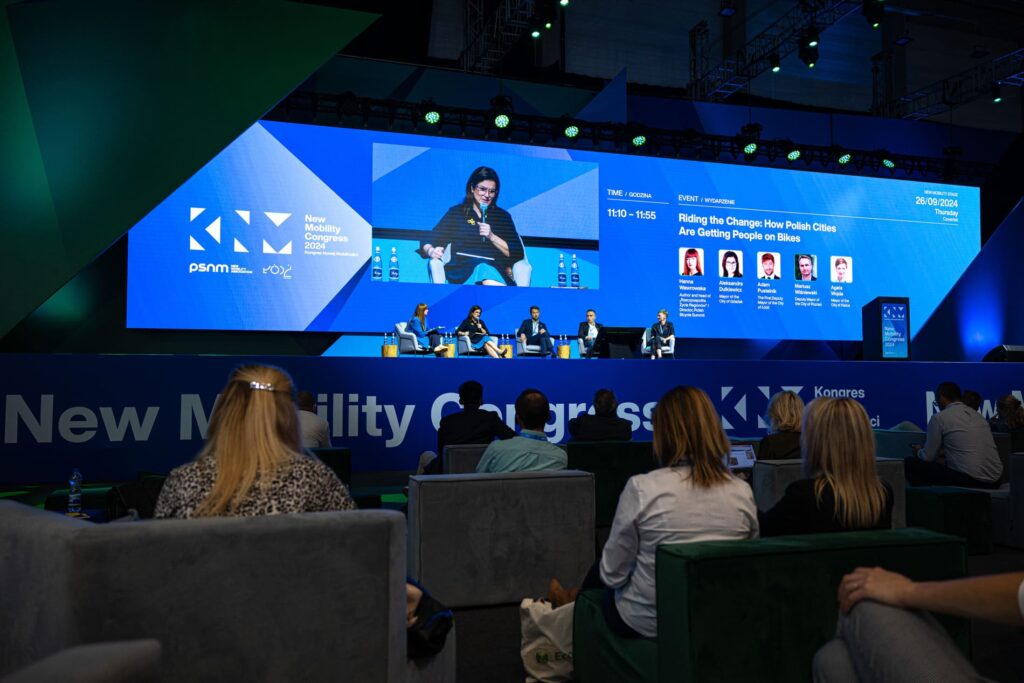
Europe needs to shift into higher gear in the race for supremacy in the new mobility sector
During KNM 2024, representatives of the automotive industry pointed out that for the growth of the electromobility market in the European Union, regulations and requirements for reducing emissions from new vehicles alone are not sufficient. They should be correlated with a more extensive support system than before and a decisive acceleration of the generally available charging infrastructure.
– Within the framework of the “Fit for 55” initiative, European OEMs must realize that delaying the ban on combustion vehicle registrations in the EU or slowing down the electrification efforts in Member States will yield only short-term, superficial gains. This would further widen the gap between them and Chinese and American manufacturers in terms of the production costs and scalability. The European automotive industry, like consumers, urgently needs more affordable electric vehicles (priced below EUR 25,000). Otherwise, it is inevitable that European buyers will eventually turn to the Chinese cars, says Aleksander Rajch, Board Member of PSNM.
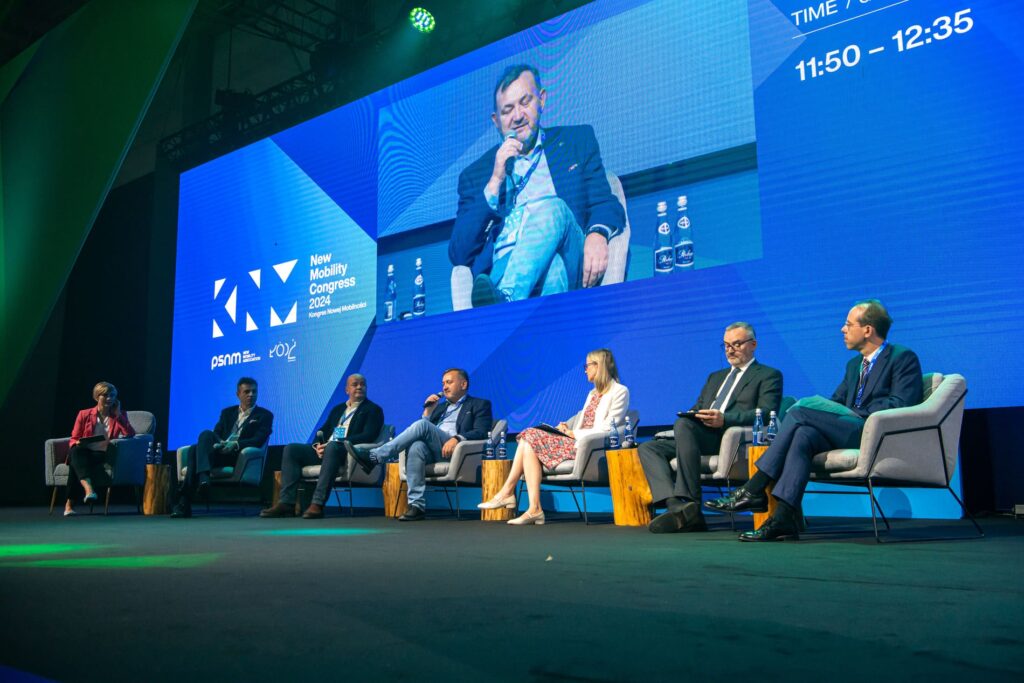
Poland needs a comprehensive industrial strategy in the field of zero-emission technologies
8% of GDP, 10.5% share in industrial production, approx. 400 thousand jobs – the figures relating to the Polish automotive sector prove that it is one of the most important pillars of the national economy. Due to the transformation towards zero-emission, many Tier 3 and Tier 2 companies operating in Poland, which supply components for the vehicles with combustion engines, may soon lose competitiveness and be excluded from the European supply chains. Many challenges also face companies from the new mobility sector. Due to the lower than expected demand for BEV and growing competition, the position of Polish companies in the battery sector is seriously threatened. Poland’s share in the export of electric buses is also falling.
– In order to maintain and then strengthen Polish production potential and prevent serious economic consequences, the central administration should develop and implement a comprehensive industrial strategy as soon as possible. It is important that such a strategy includes a schedule for implementing appropriate instruments to support the transformation. The share of the Polish capital in investments should be as significant as possible, but it does not have to constitute 100% of expenditure. At the current stage of the transformation of Polish industry, joint ventures with foreign corporations may be a convenient form of cooperation – says Maciej Mazur, CEO of PSNM.
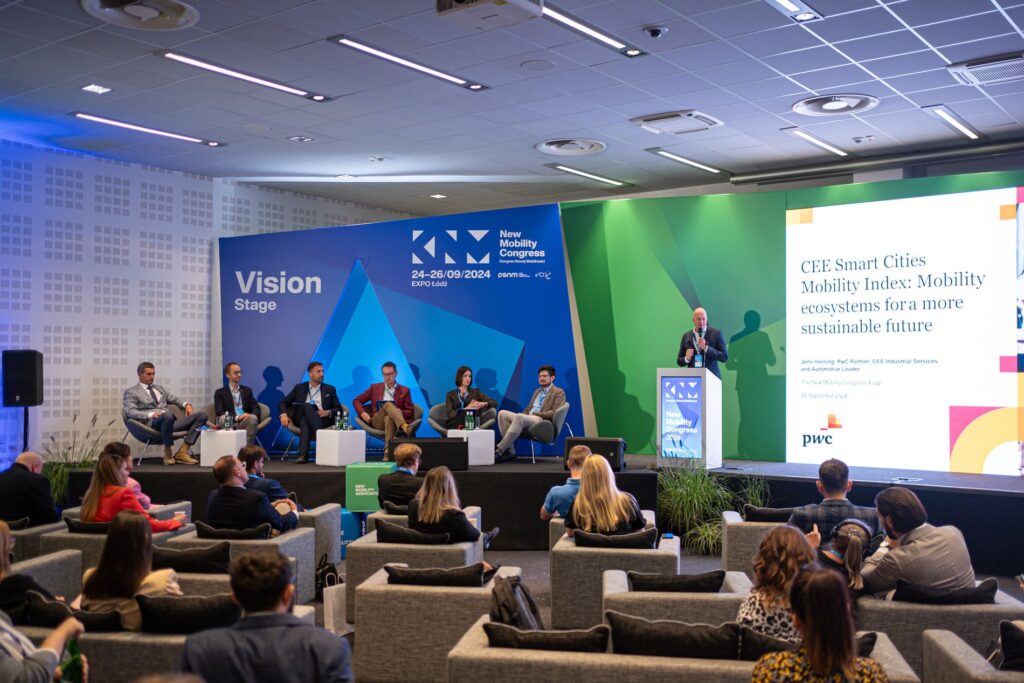
The electromobility market in the European Union: a downtime, but a temporary one
Debates during the Congress focused, among others, on the issue of a significant slowdown in the growth of demand for fully electric cars in the European Union. Many media reports claim that the e-mobility market in the Member States is on the verge of collapse, and the optimistic forecasts for its development were greatly exaggerated. Experts pointed out that the lower share of BEVs in the sales of new passenger cars in the EU (12.6% at the end of August 2024 compared to 13.9% at the end of August 2023) and lower than expected sales increases are a temporary situation caused, among others, by the end of subsidies in some Member States or next year’s entry into force of the obligation to reduce the target emission level for the EU vehicle fleet by 15% (based on Regulation 2019/631), which makes automotive companies strive to sell the largest possible volume of combustion cars this year. However, the KNM participants agreed that the EU e-mobility market will return to the path of the significant growth from 2025. In Poland, the key issue is the resumption of support under the leasing path of the “Mój Elektryk” program (along with an increase in its budget) and the disclosure of official, more detailed information on the program financed from the National Recovery Plan. Otherwise, there is a risk of withholding purchasing decisions while waiting for the subsidies to be launched.
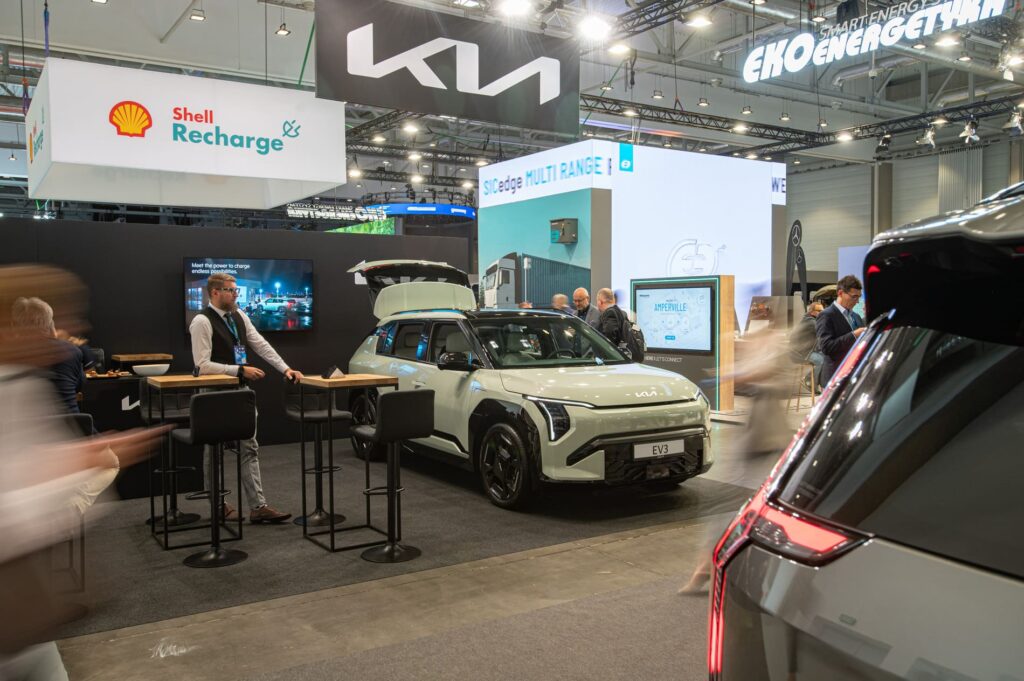
R&D and education key to increasing the competitiveness of the economy
During KNM 2024, under the patronage of the Minister of Science and Higher Education Dariusz Wieczorek, the International Scientific and Technical Symposium of New Mobility was held. During the Symposium, during several hours of debates and keynote speeches, the most important technological trends shaping the sustainable transport sector were presented and discussed.
– Poland has evolved beyond being merely a country with low labor costs and now it must transition into a hub of innovation. It is essential to move systematically away from the perception of being Europe’s assembly line and to leverage internal expertise to create value. To enhance the competitiveness of the Polish automotive sector—and the economy at large—it is vital to establish specialized research and development centers nationwide, similar to Hungary’s ZalaZone model. Additionally, supporting the enterprises and institutions focused on developing future technologies and modernizing the education system is crucial. Training creative engineers requires a strong partnership between industry and educational institutions, as these schools and universities cannot keep pace with rapidly changing technologies on their own, says Łukasz Witkowski, Vice President of PSNM.
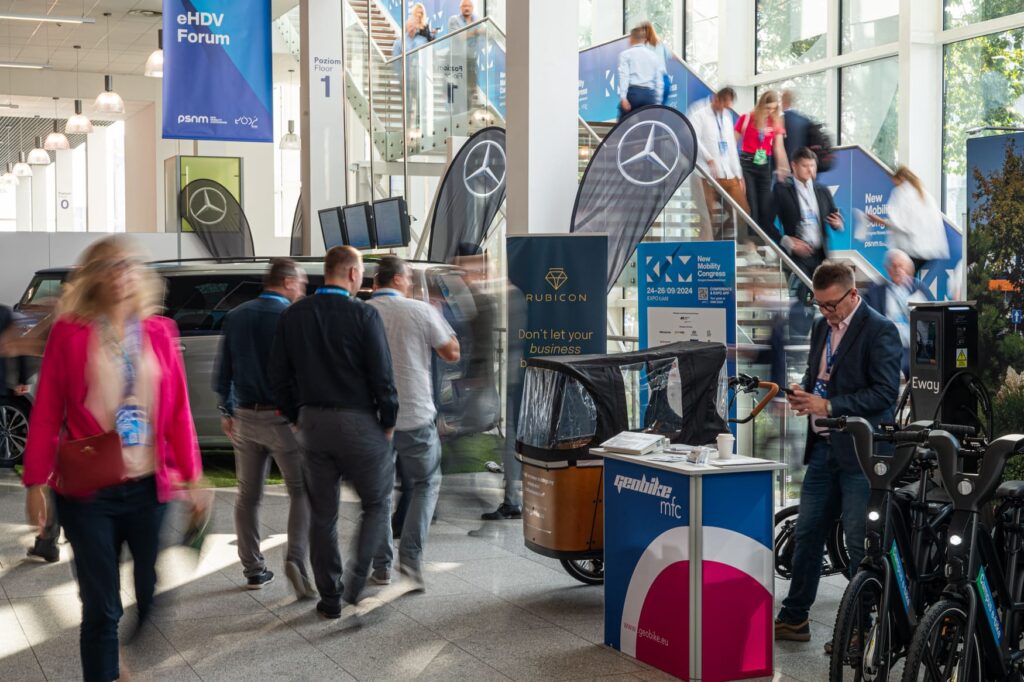
An increasingly attractive offer in the area of zero-emission heavy transport
As part of KNM 2024, an extensive EXPO of the sustainable transport sector was organized. Over 15,000 square meters of space, over 150 exhibitors presented their products and solutions. In the context of the very ambitious goals of the European Union regarding the electrification of heavy road transport, the wide range of products for the eHDV market exhibited at KNM 2024 was of particular importance. Exhibitors presented both the latest models of electric trucks (including the Mercedes-Benz eActros 600 and MAN eTruck) and the latest infrastructure solutions. KNM 2024 included, among others: premiere of the SAT1500 MCS charger designed for zero-emission heavy vehicles, developed by Ekoenergegtyka, which is compatible with the Megawatt Charging System standard and offers power of up to 1440 kW. However, stakeholders of the heavy transport sector emphasized that in order to popularize eHDV and expand the charging infrastructure in accordance with AFIR requirements, it is necessary, among other things, to launch the support programs announced by the National Fund for Environmental Protection and Water Management as soon as possible and to accelerate the equalization of the Total Cost of Ownership of electric and combustion trucks.
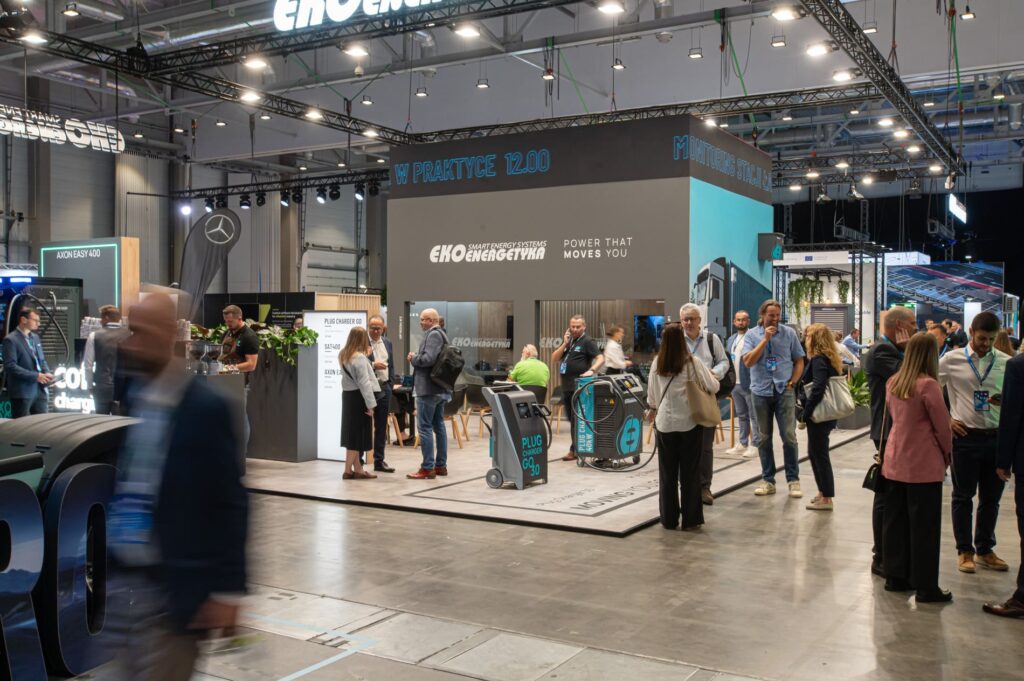
Without changes in the connection area, there will be no electrification of Polish transport
Much space during the New Mobility Congress was devoted to improving the procedures for connecting charging stations to the power grid. Representatives of leading infrastructure operators, central administration (including the Ministry of Climate and Environment) and distribution system operators (DSOs) associated with the Polish Society for Transmission and Distribution of Electricity (PTPiREE) participated in the intensive discussion.
– Without changes in the connection area, Poland has no chance of timely implementation of the assumptions of the EU AFIR regulation, nor of mass development of electromobility. In addition to a broad amendment to the law, it is necessary to significantly tighten cooperation between key stakeholders (including DSOs, the industry and GDDKiA), as well as appropriate coordination of the support programs announced by the National Fund for Environmental Protection and Water Management (NFOŚiGW) (including infrastructure for heavy electric vehicles and power connections). In the coming months, the dialogue between PTPiREE and the industry will continue, among others, within the framework of a dedicated working group that PSNM intends to establish – says Jan Wiśniewski, Director of the PSNM Research and Analysis Center.
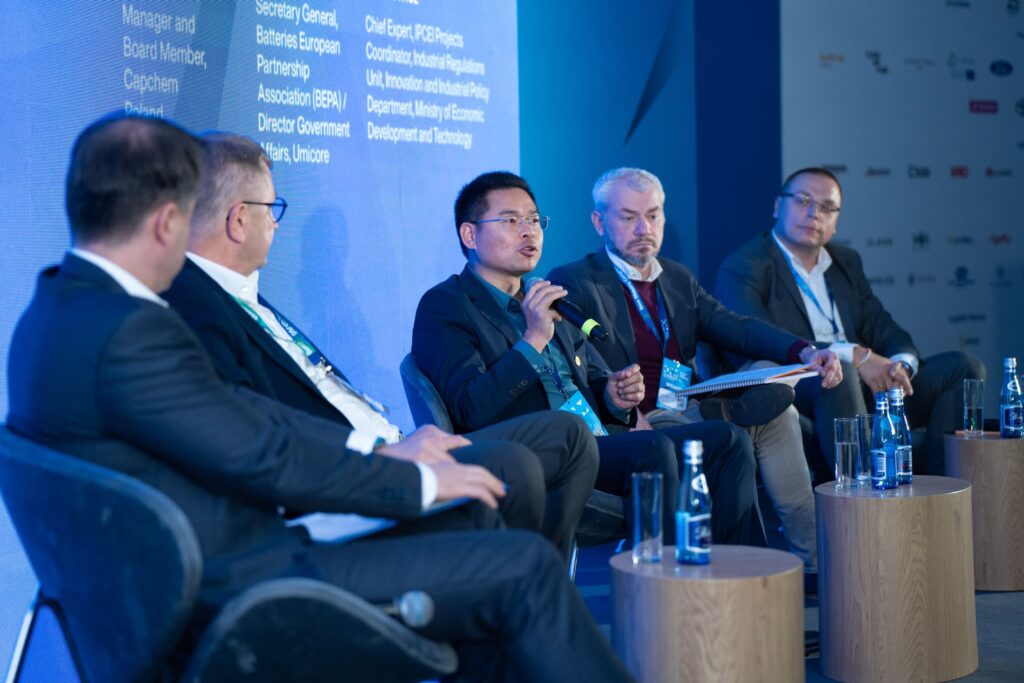
New Urban mobility for everyone
One of the leading themes of KNM 2024 was the development of new mobility in cities and adapting urban space to the needs of all residents.
– We see the need to limit car traffic, create communication routes for pedestrians, bicycles, personal transport devices, rational planning by local governments of the electrification of the public transport fleet and optimizing the terms of leasing real estate for charging stations (as well as other requirements related to the infrastructure for electric vehicles), as well as introducing effective support from the central administration in this area. Any changes in the key area of transport require reliable collection and analysis of data, thorough planning (including evaluation of the effects of implemented mobility projects) and taking into account the opinions and needs of city residents – says Agata Wiśniewska-Mazur, Deputy Director of development of PSNM.
The Congress also presented best practices, including examples from Paris, Prague, Helsinki and Ghent. Experts emphasized the need to implement effective strategies regarding social awareness of transport calls and the benefits related to the development of new, urban mobility.
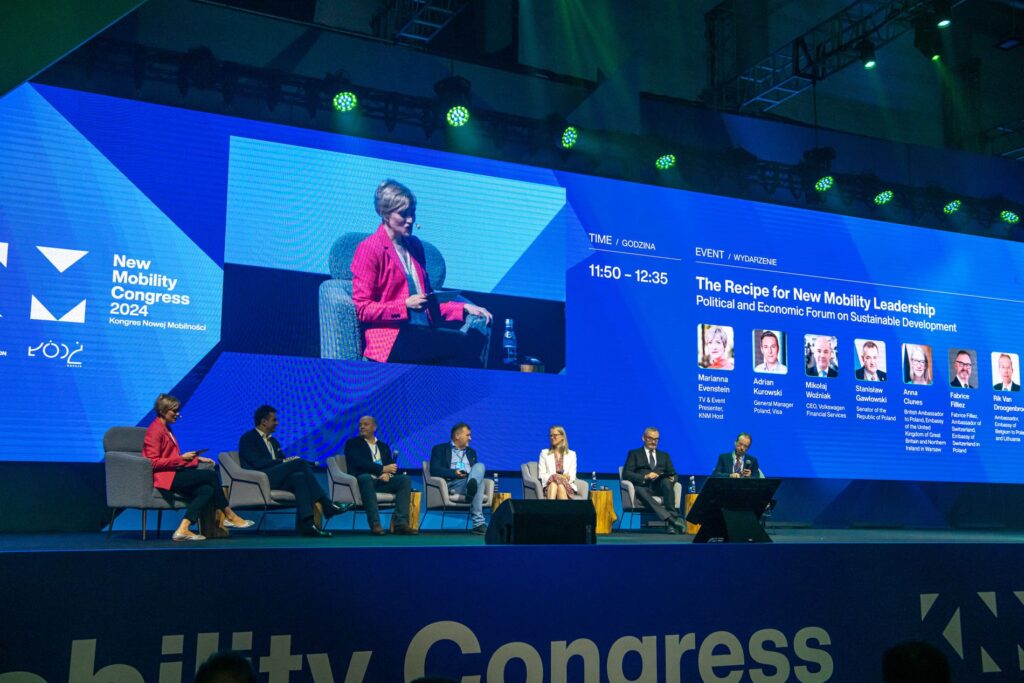
The Future of the New Mobility Congress
KNM 2024 concluded with the official announcement of plans for the future of the conference – after 4 consecutive years in which the Congress was held in Łódź, the next edition of the event will be organized in cooperation with the Metropolis GZM. The ceremonial handover of the function of the host of the KNM was attended by, among others, the Vice President of the City of Łódź Adam Wieczorek, the Chairman of the Metropolis GZM Kazimierz Karolczak and the CEO of PSNM Maciej Mazur.
KNM 2025 will take place at the end of September 2025 in the Metropolis GZM.
The gallery of the KNM2024 is available now!
